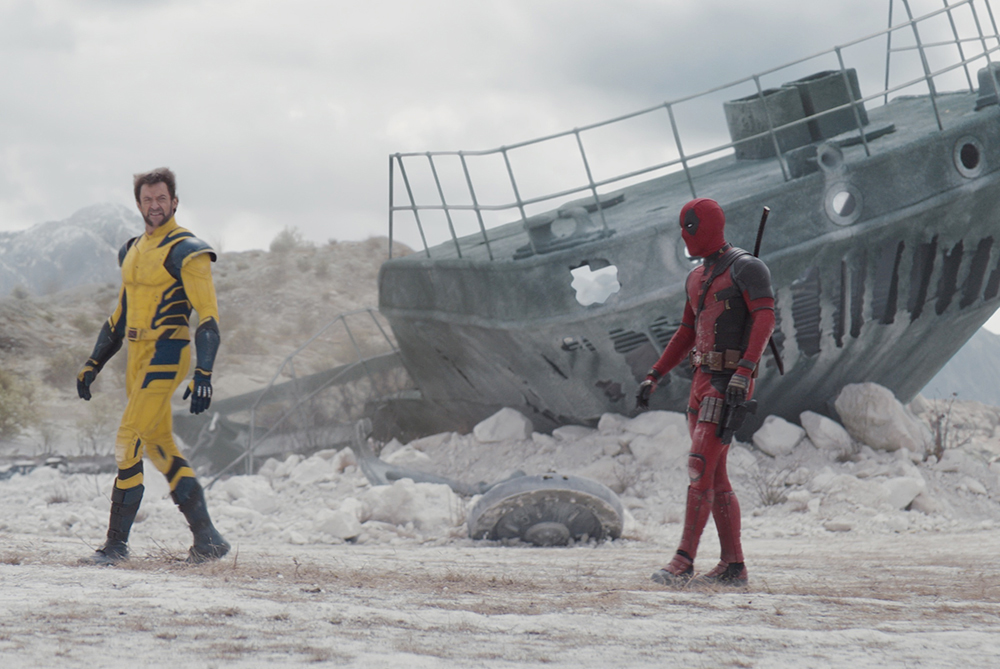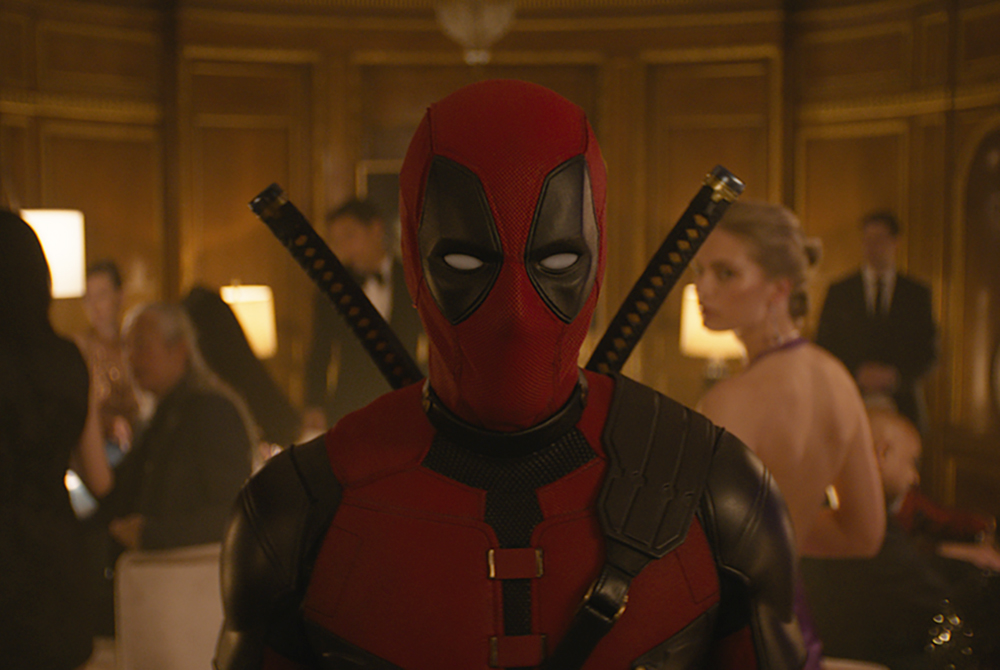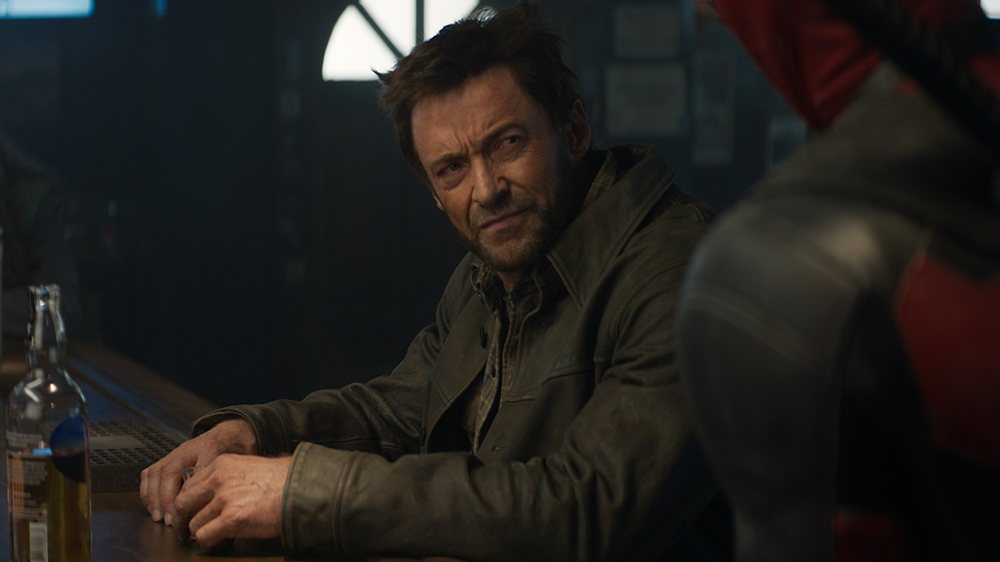
"Deadpool & Wolverine," the latest offering from the sprawling Marvel Cinematic Universe, finds an unlikely allyship between the silly Deadpool and the mysterious Wolverine. (Disney)
One can always be redeemed.
"Deadpool & Wolverine," the latest offering from the sprawling Marvel Cinematic Universe, certainly exemplifies this. The primary conceit of the film is a team up between the silly Wade Wilson, a.k.a. Deadpool (Ryan Reynolds), and the mysterious X-Man Logan, a.k.a. Wolverine (Hugh Jackman). True to "Deadpool" form, the movie is as metatextual as ever, with the main villain Paradox, played brilliantly and hilariously by Matthew Macfadyen (channeling his Tom Wambsgans character from "Succession"), attempting to "mercy kill" Deadpool’s home universe, a satirical portrayal of the closure of 20th Century Fox — which long held the rights to make "X-Men" films — after it was absorbed by Disney.
That Deadpool himself continually makes reference to the "Deadpool" intellectual property now being owned by Disney is no shocker; the series has long been known for breaking the fourth wall to comment on the state of the superhero blockbuster genre (indeed, the movie gleefully pokes fun at the incongruousness of Disney’s family friendly image being combined with Deadpool’s raunchy humor). The original film, released in 2016, existed partly as a critique of superhero cinema: in contrast to the safe and pallid PG-13 action one normally got from the genre, "Deadpool" was violent and graphic with copious amounts of swearing and black comedy. Many a joke was made at the expense of Iron Man, Captain America and even his fellow X-Men characters.
Advertisement
It would be a mistake, however, to think that "Deadpool" exists merely as a vehicle to deliver potty humor or to mock the genre. Reynolds, who not only stars in the movie but has produced and helped write the films since their inception, understands what makes the character special. Despite Deadpool’s humor being calibrated toward the sensibilities of teenage boys and the overly cartoonish levels of gore, Reynolds gets that the franchise is deeply empathetic and heartfelt.
In an interview with Entertainment Weekly regarding the second film, Reynolds said, "The first movie is a love story masquerading as a comic book movie. And this one is kind of a family film masquerading as a comic book film again." The same holds true for this third film in the saga — less of a comic book superhero movie and more of a commentary on the way that Hollywood will cancel anything that isn’t an immediate success and return on investment. Along the way, it says some surprisingly profound things about abandonment and found family, and how one can move on from tragedy.
Over the course of the film, the titular duo end up trapped in a wasteland of multiverse rejects, most of whom are characters from previous early 2000s Marvel movies — the likes of Jennifer Garner’s Elektra from 2003’s "Daredevil" or Wesley Snipes’ "Blade," who are orphaned from "universes" (read: franchises) that have been destroyed. While these work handily as pieces of fanservice and humor, there is an ever-ongoing sense of heartfelt appreciation for them. It is rare for a creative to both acknowledge and show respect for things that came before that were less than stellar. When enlisted by Deadpool and Wolverine in their plan to escape the wasteland, these legacy characters find themselves relishing the opportunity to be relevant for one last time. In short, they see their chance for redemption and readily take it.

Ryan Reynolds stars as Deadpool in "Deadpool & Wolverine." Reynolds also produced and co-wrote the film. (Disney)
The "Deadpool" franchise has been committed to its metatextual narrative since the beginning but nowhere is it more apparent than in this film. These characters (and actors) were cast aside, lost to the whims of a film industry that abandoned them the moment that their monetary worth diminished. "Deadpool & Wolverine" gives them the chance to shine again. It’s astonishing that this franchise, so committed to gross jokes and inappropriate humor, manages to use its runtime to give such a humanistic message: that one has inherent worth beyond simply what one can contribute to a larger, faceless entity. It seems appropriate that the "Deadpool" franchise’s transference to The Walt Disney Company has come with an optimistically Disney message.
These characters were from movies that people worked hard on and committed years of their life to. Reynolds himself has been involved in the superhero movie industry since "Blade: Trinity" in 2004 and knows what most who dismiss these movies often miss: that they employ an army of cast and crew, many of whom are highly passionate workers who put their all into these pieces of entertainment. This is Reynolds’ way of showing his appreciation to everyone who has ever worked on a superhero film, and it is genuinely emotional.

Hugh Jackman stars as Wolverine, a role he has played for over two decades, in "Deadpool & Wolverine." (Disney)
Of course, one would be remiss without mentioning Wolverine himself, a character that Jackman has played on a near-constant basis for 24 years. It would have been easy for him to use this movie to collect a paycheck, especially since it’s a comedy, but Jackman brings his A-game and is easily the film’s emotional core.
Wolverine finds himself lost and despondent, having suffered a tragedy born of emotional hardness and a lack of trust in his friends’ love for him. At one point, he says to a character, "You’ve got the wrong guy."
"You were always the wrong guy," they respond. "Until you weren’t."
Deadpool and Wolverine are imperfect people to ask if you want to save the world. They are violent and selfish, not exactly the gold standard for heroism. But they fight for the lost and abandoned and, in the process, maybe they can find redemption for themselves too.





